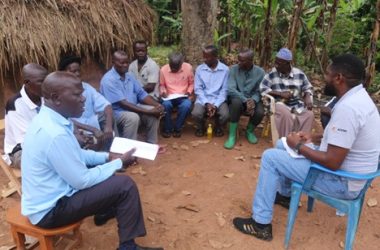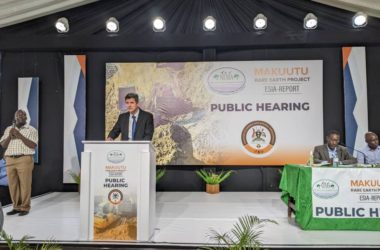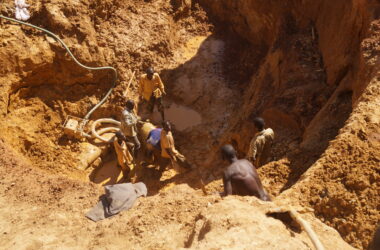In a bewildering turn of events, the Director at the Directorate of Geological Survey and Mines (DGSM) will no longer license mining companies, according to the recently passed Mining and Minerals Bill, 2021.
According to the new law, the line Minister henceforth assumes authority to issue such licenses. Reports indicate there was extensive agitation that the Bill had not empowered the Minister, a move that was reversed in Parliament, with the stroke of a pen.
The move also raised procedural issues as it is reported the Deputy Speaker, chairing the debate late in the night of February 17, directed that ‘Minister’ replaces Commissioner regarding this particular licensing Clause.
Across the mining sector, different stakeholders have expressed shock at the seemingly hasty manner in which the Bill was passed, albeit varied views on pertinent issues.
Other reports indicated that whereas a section of concerned Members of Parliament had requested a stay of the Bill to facilitate further consultations, President Museveni reportedly pushed for it to pass within a deadline of just twenty-four hours.
Another procedural issue that is of significance during the debate was the fact that the required quorum to pass the Bill was lacking, with just 52 legislators present.
It is also noteworthy that Parliament put out a late call in the media for consultations with stakeholders from far and wide across the country to appear before the Committee in less than twenty-four hours, having not interfaced with the document in any way.
Of substance however, is the issue of the Minister solely retaining the licensing authority.
Don Binyina, a mineral economist who has made considerable input in the new law as a consultant, and part of civil society representatives that appeared before the Natural Resources Committee to forward their views, noted that the technical people who comprehend the sector have erroneously been left out of the process and ultimately, critical decision making.
“When the Bill came to Parliament, there was a provision for separation of the oversight role and policy responsibilities of the Minister and technical roles for the Director or Commissioner. You cannot ask a Minister to regulate artisanal miners who make up 90% of our mining sector. You are creating access to mineral rights a problem,” he argues.
He cited countries like Ghana, Tanzania, South Africa and Zambia with robust mining sectors that have Commissions or Departments comprised of technocrats in charge of licensing.
He added that using a precedent of the oil and gas sector which has just about ten exploration or development licenses to guide the mining sector does not cut it as the latter is diverse and not as restrictive as the former.
James Muhindo, the Coordinator, Civil Society Collation On Oil and Gas, however offers contrasting views regarding the minister’s powers in an interview with the Daily Monitor:
“We didn’t like the excessive discretionary powers given to the Director in the draft Bill. One of the challenges the sector is grappling with under the current legal regime is excessive discretionary powers held by the Commissioner for the Geological Survey and Mines Department. We have noted in the new law that these discretionary powers have been vested in the hands of the Minister and a tribunal was introduced to check the powers of the Director who previously was untouchable.”
Emily Kugonza, the Vice-Chairperson of Parliament’s Natural Resources Committee, when reached for comment on the consultation process of the Bill said the Committee had asked for a three-week extension which was granted.
“That Bill was first sent to us in December (2020) and we have been with it since. There is no stakeholder that was left out. Uganda Chamber of Mines in fact appeared before our Committee as early as December,” he said.
He said the Bill is now awaiting assent from the President.
Mr. Binyina though hopes that the Bill will be sent back to Parliament and those pertinent issues, specifically regarding the Minister’s licensing powers, are reviewed.






